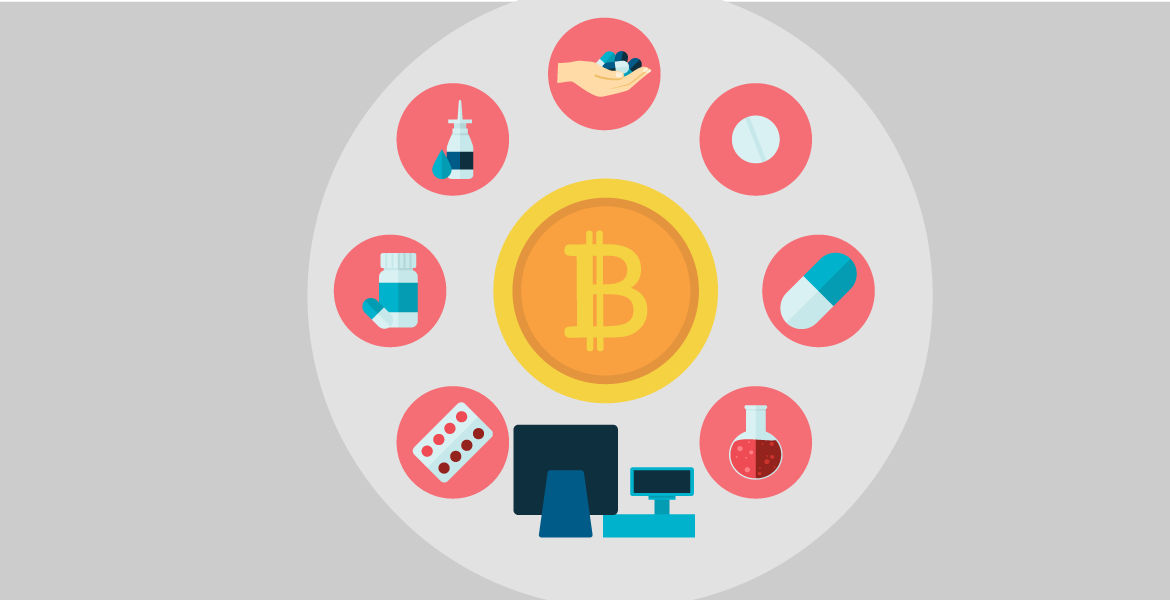Blockchain technology has been finding increasing use and implementation in

Blockchain technology has been finding increasing use and implementation in a host of different industries, in a variety of roles. Blockchain has been instrumental making supply chain management smoother and more convenient. It has also been used in healthcare, to create a distributed ledger of anonymous, yet immutable data shared between patients, doctors and researchers. What happens when blockchain begins to transform a cross-section of these two spheres? Let’s have a look at how blockchain makes pharmaceutical supply chain management easier and more effective.
Blockchain in Pharmaceutical Supply Chain Management
There have been several use cases where companies have made use of blockchain to track and monitor pharmaceutical supply chains and these cases have revealed how much blockchain can help in the process of making drugs safer and more accessible to those who need it.
Blockchain and Pharma Logistics
When pharmaceutical drugs move from manufacturers to stores and ultimately patients, a large number of databases are made by the various links in the chain: the manufacturer, the distributor, the pharmacy owner. However, most of these databases are completely incoherent with one another, leading to a great deal of confusion as to how a drug has been made, processed and supplied. With a distributed ledger made possible by blockchain technology, it can be possible to access all product-related information at one go: ranging from the authenticity and details of the ingredients used in making a drug to data about why it was prescribed. Moreover, many a time research companies have to be paid a very high price for conducting research about how the pharmaceutical products have been moving from one supply point to another.
Blockchain and Drug Safety
Often, patients can be affected by the presence of certain active ingredients that may not be mentioned on the label. Increasing number of deaths related to this makes the role of blockchain in this scenario all the more relevant. By improving traceability of the product, blockchain makes it possible for all concerned parties or stakeholders to know all the details of the drugs and whether they’re safe for consumption for certain patients with other related health issues.
Blockchain’s Role in Consumer Awareness and Safety
It is easier to prevent a public health outbreak because of a faulty batch of pharma drugs when a ledger is maintained on a blockchain network versus when it is not. How is it so? By providing information on every stop a product has made through its entire life cycle, blockchain databases make recall management many times easier. In addition, with heightened access to clear, accurate and immutable data, consumers can be truly aware of what drugs they are buying and how its various ingredients are acting on them.
Blockchain’s Role in Management of Inventory
Blockchain databases record every aspect of the supply chain, ranging from how many were manufactured to how many were sold across different stores. This provides an insight into the demand-supply dynamic of a particular product, based on a particular season. For example, the monsoons might see the sales of common cold antibiotics shoot up. By providing an idea about the pattern of demand and supply, blockchain databases can help manufacturers, distributors and retailers plan their inventory management accordingly.
Blockchain’s Role and Management of Clinical Trial Data
Blockchain can make clinical trials more insightful and reliable as well. As increasing numbers of biotech firms begin to use large molecules for pharmaceutical manufactures, it becomes more important to understand how it plays out as drugs administered to patients. It can also be used to provide clinical kit management practices to the patients. This helps in eliciting the most accurate responses and results from the control group of patients.
Therefore, through these various aspects of blockchain usage in pharmaceutical supply chain management, we can reap the unending benefits of this revolutionary technology and positively affect many lives in the process.

